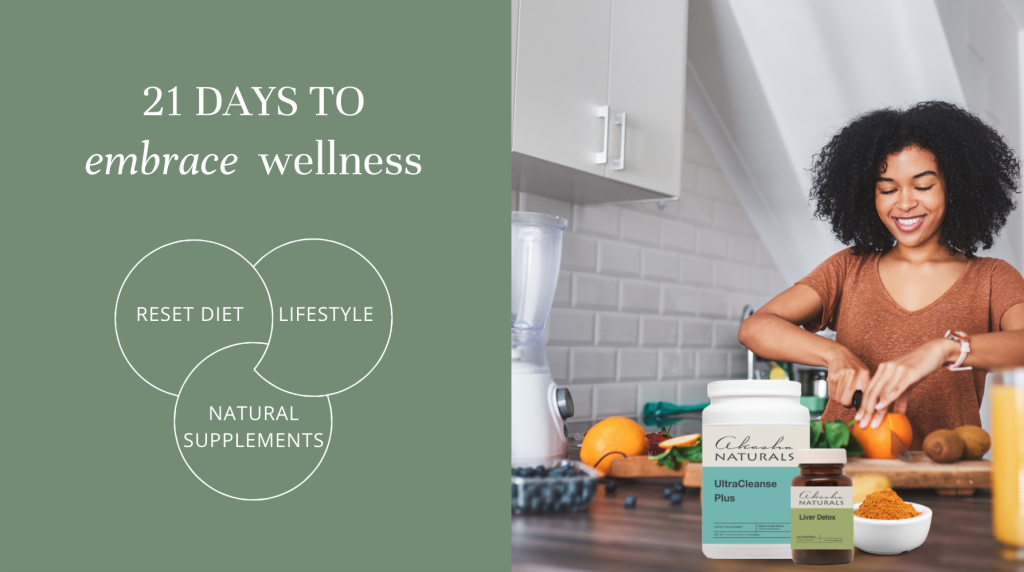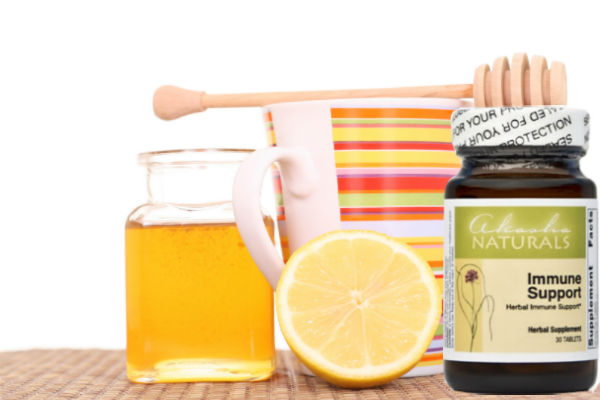QUESTION: In layman’s terms, what are telomeres, i.e., what’s an easy-to-understand analogy for what they are and how they work? How do short and long telomeres affect health and lifespan?
Answer:
Telomeres are specialized protein structures attached to the end of chromosomes that provide essential protection from enzymatic end-degradation (due to metabolic and environmental toxins) and help maintain chromosomal and gene stability.
They are a nucleotide (protein) sequence repeated thousands of times in our genetic code. Their protective function, for example, is similar to protective ends on the strings of shoelaces which prevent them from fraying. Their length shortens as our DNA replicates until they are no longer effective. Over the course of our life time, our telomeres shorten because part of the end of our DNA does not replicate, rather, our cells divide. Referred to as the “med replication problem”, the resulting short telomeres can generally end in a bad health outcome. And once all the telomeres have been used during cell division, vital DNA function is lost and as a result, cellular function begins to decline. Environmental toxicity, unhealthy diet, stress, a sedentary life style, increased age and excessive alcohol, tobacco and drug usage shorten our telomeres, hence the interest in preserving third length. The longer their length, the more preservation of vital cellular function (detoxification and stronger immunity), which in turn, leads to increased longevity
What does telomere length have to do with (healthy) aging?
Coffee and Telomere length
There’s a surprising benefit of that morning cup of java: Women who drink more coffee have longer telomeres, found The Journal of Nutrition in a study of 4,780 women (https://academic.oup.com/jn/article/146/7/1373/4616108?searchresult=1). Only regular caffeinated coffee has telomere-protecting benefits.
Question: What do we know about how coffee might affect telomeres, based on some research? How does lengthening telomeres, generally, lead to longer life and protect against disease? Are some types of coffee better than others (e.g., caffeinated vs. decaffeinated)? What’s the suspected reason behind coffee’s possible telomere-lengthening effects?
Answer: Coffee (is one of the most popular beverages, and in some countries, it may even compete with water for the number one placement.)
Coffee (caffeinated) consumption generally seems safe with current research pointing to risk reduction for various health outcomes at three to four cups a day:
- It may reduce all-cause mortality
- It may prevent Inflammation
- It may lead to longer telomeres
- It may reduce cancer risk
- It supports healthy microbiome.
STRESS
Several studies have linked chronic stress to shortened telomeres
What do we know about how stress affects telomeres–especially chronic stress? How might lessening stress improve the health of telomeres? What are some proven ways to lower stress (reading a book, yoga, etc.)?
Stress and telomeres is a very large subject, but what we do know is that those suffering from chronic stress, do tend to have shorter telomeres. Reason being, there is a significant negative effect of high levels of cortisol and other stress hormones on basically every cellular and metabolic function of the body. While there is still much research to be done on the subject, the inflammatory properties of stress causing telomere dysfunction and in turn causes inflammation has been scientifically proven.
Reducing stress is important to a healthy life, and one way to do that is with mindfulness, that is being aware of the situation you are in. Often times it is our own thoughts and imagination that create stress. Being able to correctly assess the situation can result in reducing stress. Make sure that you get off the “treadmill of life” at least once in a while so that your system can reset. The fight or flight response (sympathetic nervous system) is real and detrimental to one’s health when not balanced with the stop and relax phase of your nervous system (parasympathetic nervous system). Reading a great book, practicing mindful meditation, LAUGHING, showing gratitude and doing yoga, are among the many things one can do to “stop and smell the flowers” and live longer in the process.
EXERCISE
No doubt about it, exercise keeps your cells young. So much so, that middle-aged folks who run to stay fit have telomere lengths that are 75% longer than people who don’t exercise, according to research. That doesn’t mean you need to become an ultramarathon runner, though! Even regularly engaging in intense exercise, like brisk walking, can keep telomeres long and protective.
Question: Why does exercising make such a big impact on telomere length, and how does this translate to greater health and longevity? Most of our readers aren’t incredibly active, but they are interested in keeping moderately fit. Might small bursts of exercise help lengthen telomeres–and if so, how much should they do and what kind of activities will spark the most telomere-lengthening results?
Although more research is needed, the causal result between exercise and telomeres, has become more and more evident as we live longer. Sedentary lifestyle contributed to the development of disease, while exercise helps prevent it. However, just as with the coffee consumption example, correlation does not mean causation. What we know thus far is that exercise does reduce oxidative stress and inflammation, which telomere length has been closely related to.
Amongst the research I have come across, exercise helps prevent shortening of the telomeres because it increases vascular function, decreases oxidation and inflammation, and releases endorphins while counteracting cortisol. Those who exercise such as jogging, or weight bearing exercise, power yoga and, I love this one, even dancing, for over 30 minutes 4-5 times a week, tend to see the most benefits.
VITAMINS
Foods high in vitamins C and E, like blueberries and raspberries, protect telomeres from oxidative damage. You can boost that great effect even more by following your bowl of berries with a multivitamin supplement. One study found that the telomeres of women who took a daily supplement were about 5% longer than nonusers.
Question: If readers want to boost their telomere health with foods, what are some of the best to eat, and why, i.e., what beneficial nutrients do they contain? How might also taking a multivitamin protect telomeres by compensating for any deficiencies?
According to a study from the Journal of Nutritional Biochemistry
Vitamins A, B, B12, D, C&E Magnesium, Zinc help maintain Telomeres while iron has been found to be correlated to shorter telomeres.
Current research has shown that the B vitamin, such as folate, B12 and B6 play an important role in maintenance of DNA integrity and DNA methylation (cellular protection), and thus prevents the shortening of telomere.
For example, research has shown that women who use vitamin B12 supplements have longer telomeres when compared with those who do not. Vitamin D3, zinc, iron, omega-3 fatty acids, and vitamins C and E have also been shown to influence telomere length.
But how do vitamins and nutrients affect telomere length? They optimize the activity of telomerase, an enzyme that adds the telomere repeats (sequence) to the ends of your DNA therefore making it longer. This in turn, regulates cellular aging and the activation of DNA damage pathways.
WHAT ELSE?
Please provide one additional way readers can lengthen their telomeres and tell us why it works so well.
- Vitamin D
The good news is that vitamin D is a potent inhibitor of the body’s inflammatory response, and by reducing inflammation, the turnover of leukocytes (inflammatory cells) are diminished, therefore effectively creating a positive chain reaction that can help protect you against a variety of diseases.
- Astaxanthin (derived from the microalgae)
Astaxanthin has emerged as one of the most potent and beneficial antioxidants currently known, with potent anti-inflammatory and DNA-protective capabilities. Research has even shown that it can protect against DNA damage induced by gamma radiation. It has a number of unique features that make it stand out from the crowd!
- Ubiquinol (CoQ10)
Coenzyme Q10 (CoQ10) is the fifth most popular supplement in the United States, taken by about 53% of Americans, according to a 2010 survey by ConsumerLab.comvii. This is a good thing as one in every four Americans over 45 is taking a statin and every single one of these individuals should be taking CoQ10.
COQ10 is used by every cell in your body and thus referred to as “ubiquinone” because it’s ‘ubiquitous’ in the human body.
Premature aging is also thought as a result from having too little CoQ10 because it recycles other antioxidants, such as vitamin C and E. In addition, because it is essential to heart health and muscle function, CoQ10 deficiency accelerates DNA damage. Its depletion also leads to fatigue, muscle weakness, soreness and even heart failure.
- Probiotics and fermented foods
Researchers have discovered that genetic mutations and malfunctions that result in cause are created in our future generations when highly processed and artificial foods are consumed. This is due to the obscene amount of money that Americans spend on highly processed and junk foods.
Processed, sugary and chemical-laden foods effectively destroy the intestinal microflora significantly affecting the function of our microbiome. The gut flora is where a great majority of your immunity system resides. Antibiotics, stress, sugary and artificial foods and chlorine infused water, for example reduce the amount of the beneficial bacteria in the gut and thus predisposes us to illness and premature aging.
Fermented vegetables and probiotics, such as Activated You Advance Restorative Probiotics, are an excellent way to replenish our good bacteria.
- Omegas (Fish Algal or Krill Oil plus avocados, olive oil, etc.)
Preliminary research has shown that Omega-3 fats play a significant role in activating telomerase use to their antioxidant effects on inflammation.
Other potentially telomere length enhancing vitamins are:
- Vitamin K2
- Magnesium
- Polyphenols (such as resveratrol in grapes)
Polyphenols are potent antioxidant compounds in plant foods, many of which have been linked to anti-aging benefits and disease reduction.
- Cacao
- Green tea – Polyphenols in green tea have been found to offer protection against many chronic diseases and is a great source of antioxidants.
- Methylated B Vitamins (folate B6, B12)
- Curcumin — the active ingredient in the spice turmeric—acts both as an immune booster and potent anti-inflammatory.
And lastly, Intermittent Fasting — Current research shown calorie restriction also achieved by intermittent fasting contributed to lengthening of telomeres. It basically gives your system a break and allowing it to reset itself, as it did for our ancestors when food was not readily available. They basically needed to “save energy” until they could hunt their next meal.
–
Dr. Edison de Mello is the Founder and Chief Medical Officer of The Akasha Center of Integrative Medicine. You can make an appointment by calling him at 310-451-8880 or emailing us at info@akashacenter.com.



















